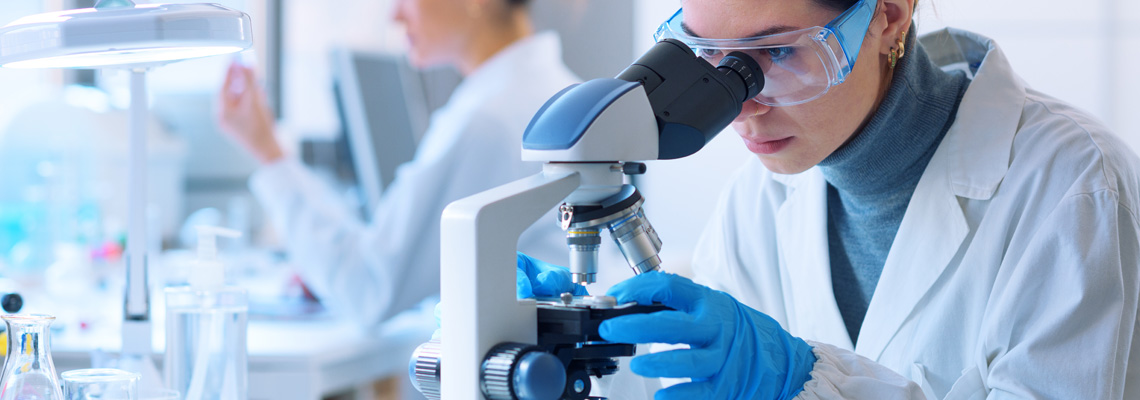Biotechnology is an ever-evolving field that encompasses various techniques such as genetic engineering, bioprocessing, cell culture, and biomaterials. The Institute of Biotechnology recognizes the importance of biotechnology education for individuals who want to contribute to industries like healthcare, agriculture, food, environment, and energy as scientists, researchers, or entrepreneurs. In this article, we will provide a comprehensive study of techniques and applications of biotechnology education, including the challenges in teaching this subject and the future prospects of biotechnology education. We will also discuss the role of biotechnology education in advancing industry and society. Whether you are an aspiring biotechnologist or a seasoned expert, this article, brought to you by the Institute of Biotechnology, will provide you with a deep insight into the world of biotechnology education.
Techniques in Biotechnology Education
Biotechnology education includes the study of various techniques that involve the use of biological systems and processes. There are several techniques that are vital to the field of biotechnology, and these techniques should be taught in a comprehensive manner to ensure that students have a comprehensive understanding of the subject. Some of the techniques used in biotechnology are:
- Recombinant DNA Technology - This technique allows for the manipulation of DNA sequences to alter gene expression or insert foreign genes into living organisms.
- Protein Purification - This technique allows for the isolation of specific proteins from a complex mixture using various biomolecular techniques such as chromatography.
- Cell Culture - This technique allows for the growth and maintenance of cells outside the body, which is vital to the production of biological compounds such as vaccines and medicines.
- Immunoassay - This technique involves the use of antibodies to detect and quantify the presence of specific substances in a sample.
- Genome Sequencing- The analysis of genetic material which can aid in diagnosis, drug development, and conservation.
A comprehensive understanding of these techniques is crucial for students to have a successful career in biotechnology.
Applications of Biotechnology Education
Biotechnology education has various applications that can contribute to societal and industrial advancements. Biotechnology plays an essential role in various industries such as healthcare, agriculture, and environmental protection. Common applications of biotechnology education include:
- Production of Pharmaceuticals - Students learn about the production of drugs, vaccines, and other medical products through the use of genetic engineering and cell culture.
- Agriculture - Biotechnology education includes the study of genetically modified organisms (GMOs) and their role in increasing crop yield, reducing losses to pests and diseases, and improving food quality.
- Environmental Protection - Biotechnology has potential benefits in addressing environmental problems such as pollution, waste management, and conservation of natural resources.
- Industrial Biotechnology - Students learn about the use of biotechnology in manufacturing products such as biofuels, industrial enzymes, and bioplastics which help in reducing the dependence on fossil fuels.
Biotechnology education equips students to apply their knowledge in various fields and expand their career opportunities.
Challenges in Teaching Biotechnology
Teaching biotechnology comes with its fair share of challenges. One fundamental challenge is the complexity of the subject itself. Biotechnology involves the combination of various scientific disciplines such as molecular biology, microbiology, and biochemistry. Another challenge that educators may face is the lack of access to advanced laboratory equipment, especially in underprivileged areas. Additionally, due to the fast-paced nature of the field, it is essential to stay up-to-date with the latest technologies, which may require regular updates to the curriculum. Despite these challenges, educators must continue to provide students with a comprehensive understanding of the subject.
Future of Biotechnology Education
The future of biotechnology education appears to be bright. As the demand for biotechnology continues to grow, there will be an increased need for trained professionals in the field. It is essential for educators to prepare students to meet the expected growth in the industry. Incorporating innovative teaching methods such as experiential learning and integrating technology into the curriculum can enhance students' learning experience. Additionally, collaborating with industry professionals can provide students with relevant industry experience to equip them better for future careers.
Role of Biotechnology Education in Advancing Industry and Society
Biotechnology has the potential to revolutionize various fields and contribute to solving global problems such as hunger, disease, and environmental degradation. Biotechnology education plays a fundamental role in advancing industry and society by training professionals with relevant skills and knowledge. With the demand for trained professionals in biotechnology on the rise, biotechnology education is more critical than ever. It is through comprehensive biotechnology education that we can realize the benefits of the field in improving people's lives and environmental sustainability.
